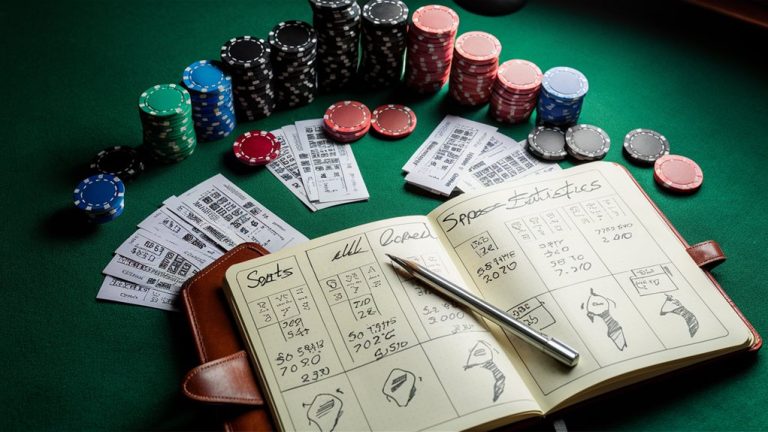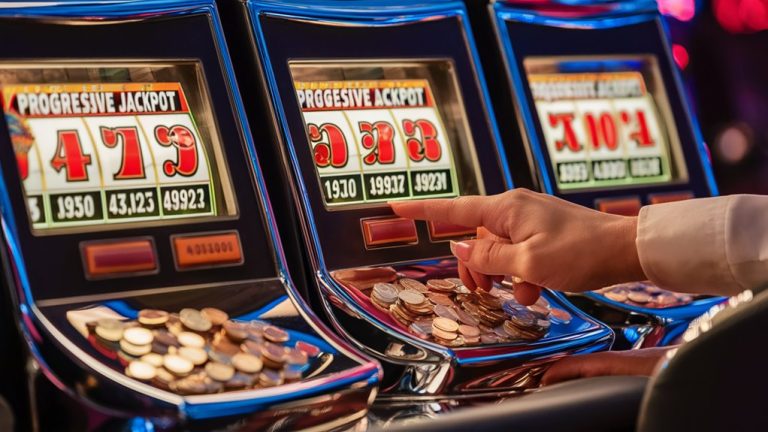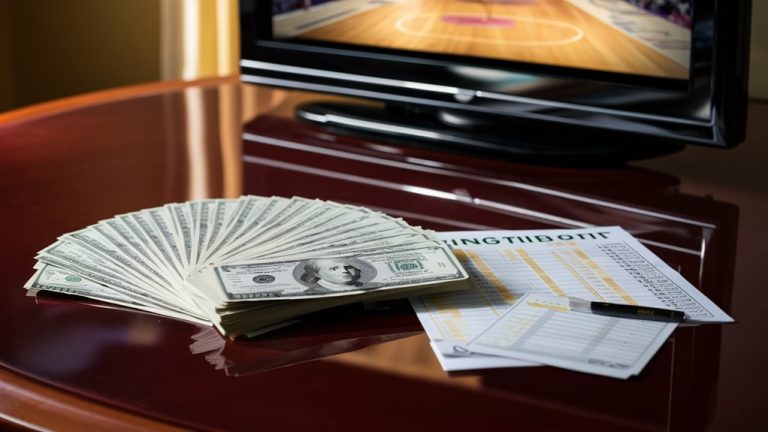
Mistakes That Gamblers Commonly Make
It is critical to realize and avoid drinking behavior that kills both our finances as well as personal well-being. The following five mistakes are the bane of gambling that can ruin it completely:
Making Up for Losses
The most dangerous gambling behavior pattern is changing your wagers to cover losses in order to win the money back. This vicious cycle creates geometric financial danger and emotional pain. The successful player views losses simply as part of the process and remains constant in how much he has set aside for each type of bet.
Poor Money Management
Failing to establish and keep financial limitations is a major mistake in terms of gambling strategy. Successful gamblers set clear limitations on their betting bankrolls and never extend themselves beyond predetermined full loss limits. In doing this, they keep core financial management practices disciplined and under control.
Making Bad Decisions Due to Alcohol and Drugs
When you gamble under the influence of alcohol or other intoxicating substances, your capacity for judgment and making good choices is greatly reduced. This often involves overly taking risks or poor decisions that you would not have made in a clear-headed state. Nowadays, professional gamblers stay away from such influences thereby ensuring that they are in the right mindset to think efficiently and rationally.
Ignoring Mathematics
Many gamblers make the fatal error of betting against unfavorable odds, without understanding the mathematical principles obligatory in gambling. Successful gambling requires a complete knowledge of probability, house edge, and expectation calculations for every kind of wager.
The Gambler’s Fallacy
Seeing that what has already happened will determine the future represents a misapprehension of probability. Every gambling event takes place independently of the preceding ones. Understanding this point serves to eliminate irrational betting patterns based on false premises about “due” outcomes.
When a gambler tries anxiously to recover lost money, betting more and more, thereby entering into this destructive cycle, it brings serious money and psychological problems.
Warnings and Risk Factors
The shift from recreational gambling to a gambling problem often begins with chasing losses. Loss-chasing is a key indicator. Indicators include:
Attempting to recover losses by making progressively higher bets
Exhausting savings or other emergency funds in order to gamble
Ignoring the predesignated loss limits you set on the spur of the moment
Feeling ashamed and guilty
Making bets with your emotions rather than through logical reasoning
How to Break the Pattern
Effective Controls Plan
Establishing and keeping strict loss limits is essential for responsible gambling. Each gambling session requires:
Predetermined maximum loss limits
A time limit for that evening’s betting
Enough money set aside so that if it disappears, win or lose, there are still resources left to cover living costs or a night at the hotel
Clear methods for leaving when these limits have been reached
Understanding Probability
Every gambling event is independent. Past results can never affect future ones; therefore, to chase after losses is a strategy that is fundamentally flawed. Recognizing this mathematical truth helps to control the impulse to chase after losses.
Seek Professional Support
When loss-chasing becomes more than you can cope with, professional gambling support services can be of help in such times of need. These facilities offer:
Confidential counseling
Advice on financial management
Programs to aid with addiction recovery
Peer support networks
Remember: recognizing losses and their drawbacks represents a healthier choice than to enter a self-destructive chase which can result in more emotional and financial problems.
Neglecting Bankroll Management
Bankroll Management’s Critical Importance in Gambling
But implementing bankroll management fundamentals remains all too frequently overlooked by players. Gambling without knowing how is a recipe for disaster.
Implementing Good Control of the Bankroll
One must first establish clear financial boundaries before engaging in any gambling activities. Set a specific maximum loss limit for the day, weighing Ebonyphase Casino only discretionary money which, if lost, won’t have any impact on your finances or your obligations as a debtor.
Dividing bankrolls strategically is to break your total gambling budget down into units of a smaller size, and to keep the size of the bet small—generally speaking, only 1% of each stake or less.
Balancing Your Checkbook and Managing Profits
Disciplines of financial segregation fall parallel with our care to respect the environment. Therefore, when gambling funds are joined with personal expenses (in a normal checking account for instance), they are liable to be used as stakes—a breach of prudent betting practices violates principle. Do not use borrowed money or household living costs for gambling activities either.
When you have winning sessions, set aside some money from your winnings as capital to keep ahead of any losses you may subsequently suffer before you go back in there again.
Hard and Fast Guidelines for Bankroll Management
Set limits beforehand for each session
Keep separate gambling accounts and personal finances
Watch every wager and scrutinize tactically
Select winning units for withdrawal
Never draw on principal to recover losses
This hard-nosed approach to bankroll management helps ensure sustainable and cost-effective gaming while keeping you in your financial stakes.

Psychological Gambling Disease
Psychological gambling disease is worse when in combination with physical diseases. This chapter will focus on the basic effects caused by common physical complaints—from sneezing to drug abuse.
For those with combined gambling and alcohol use disorders, the prognosis is bleak. Instead of heading down that path, you can consider these treatment options:
Specialized counseling services
Addiction recovery programs
Financial management assistance
Behavioral therapy
Support group participation
While gambling, your financial and personal wellbeing depend on clarity. If you use drugs or alcohol that affect your gambling decisions, it’s time to get help today.
Possible Treatment for Substance Abusers in Recovery: A Guide to Western Style Gambling
Western Style Gambling the Strategies and Techniques of a Master
Betting Against the Odds
Betting against the odds is the most destructive pattern in a player’s gambling career. Many gamblers are lured into ignoring mathematical reality, and bet on only the most unlikely things. They are motivated by thoughts of “hitting the big one.” Such thinking eventually results in truly major economic losses and unprecedented mental strain for them—not least because it is absolutely wrong-headed. Nocturne Lash Blackjack
Statistical Probability in Gambling
Statistical probability is the keystone of all gambling results. Betting against almost certain odds is the most destructive pattern in a player’s gambling career. A thoroughly practical understanding of independent events and probability is needed to shatter this popular misconception.
Play to Win: Attributes A Winning Gambler Must Possess
Minimize the house edge
Focus on games and bets with the least house advantage
Learn basic strategy for blackjack
Master point spreads
Compile game statistics
Implement bankroll management
Math decision making to succeed
Success in gambling requires:
Understanding statistical probability
Following proven systems for betting practices
Maintaining strict recordkeeping
Identifying good odds
By incorporating scientifically sound decision-making and concentrating on games with a higher payoff ratio, players can substantially heighten their chances not only of surviving but also winning.
The Gambler’s Fallacy
The Gambler’s Fallacy represents a fundamental cognitive bias that significantly contaminates decisions on gambling. The psychological trap arises when the perceived connections between separate random events try to dictate later outcomes in games of chance. 온카스터디
Common Signs
Players sometimes commit this logical fallacy whenever they find patterns in complete randomness. If a white ball has come up ten times, it might seem miraculous if black comes out next. This kind of thinking appears in many different gambling contexts from the casino to choosing lottery numbers.
Quantitative Analysis of Independent Events
Each isolated game maintains its own statistical independence. The wheel’s spin, the roll of a die, or the deal from which point cards are taken into play all have no memory. No matter what happened previously, the general situation is unchanged.
Probability Basics
A coin that turns up heads five consecutive times still has exactly a 50% chance of coming up tails next time it is flipped.
Earlier spins of the roulette disk have no effect on what will happen next.


